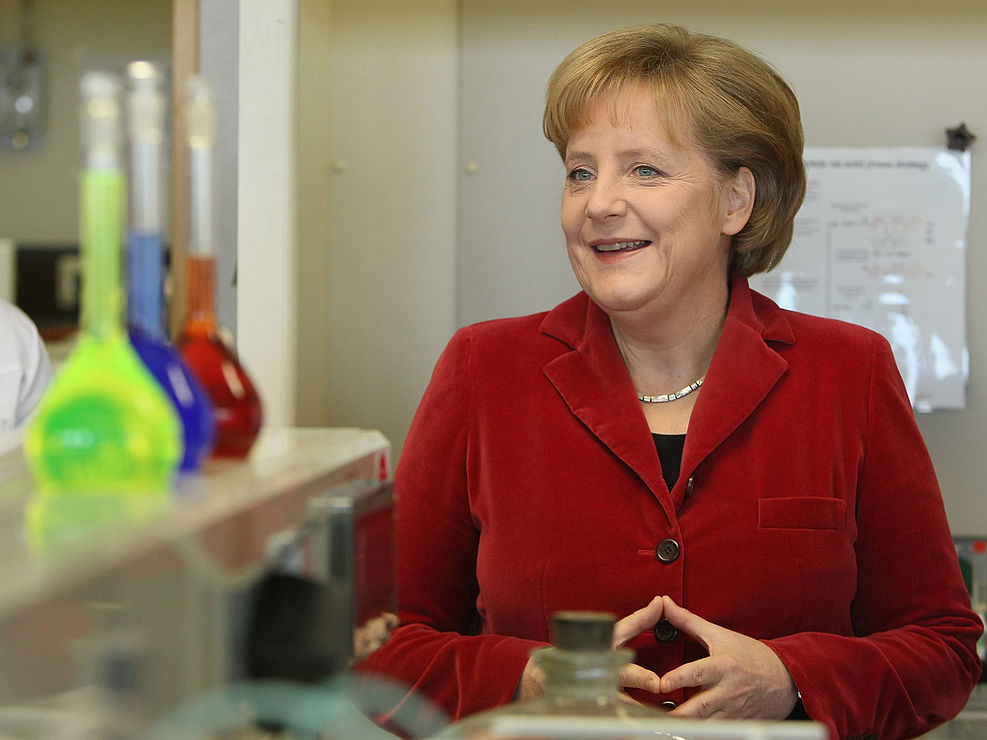• German Chancellor Angela Merkel just won another term in office.
• Before she entered the political realm, she had a successful career as a scientist.
• At one point, the Stasi – East Germany’s secret police – attempted unsuccessfully to recruit Merkel.
German Chancellor Angela Merkel won her fourth term in office Sunday, further solidifying her position as the de facto leader of Europe.
Some observers are even calling her the new leader of the Free World.
Merkel has become a fixture in the international leadership scene, having helmed her country since 2005. However, long before her foray into politics, she worked in an entirely different field. The German Chancellor has a PhD in quantum chemistry and was once a scientist in East Germany.
Here’s a look at her early career:
Merkel excelled at Russian language, mathematics, and science in school and ultimately studied physics at the University of Leipzig from 1973 to 1978.

Source: The New Statesman, " Women Leaders of Europe and the Western Hemisphere"
Toward the end of her time there, she tangled with the Stasi — East Germany's secret police. When she applied to be a professor at an engineering school, the Stasi attempted to recruit her to spy on her colleagues. She refused, and the job went to someone else.

Source: TIME
After earning her doctorate in quantum chemistry from the German Academy of Sciences in Berlin in 1986, Merkel worked at the Central Institute for Physical Chemistry at the Academy of Sciences in Berlin until 1990. She was the only woman in her section and authored a paper on surface hydroxyls.

Source: The New Yorker, The Making of Merkel, BBC
Merkel would commute to work on the S-Bahn. "For several stretches, her train ran parallel to the Wall, the rooftops of West Berlin almost in reach," George Packer writes in the New Yorker.

Source: The New Yorker
Packer wrote that Merkel's scientific ambitions were often "frustrated by her lack of access to Western publications and scientists."

Source: The New Yorker, "Women Leaders of Europe and the Western Hemisphere"
On November 9, 1989, the night the Berlin Wall fell, The German Chancellor famously skipped out on the celebrations when the Berlin Wall fell. Instead, she visited the sauna, briefly walked into West Germany, and then went home to get some rest before work the next morning.

Source: The New Yorker, "Women Leaders of Europe and the Western Hemisphere"
Ultimately, though, the fall of the Berlin Wall propelled Merkel into a career in politics. Observers have pointed out Merkel's observant, analytic, and cautious work style and attribute her analytical methods to her background in science.

Source: The New Yorker, "Women Leaders of Europe and the Western Hemisphere," Business Insider

